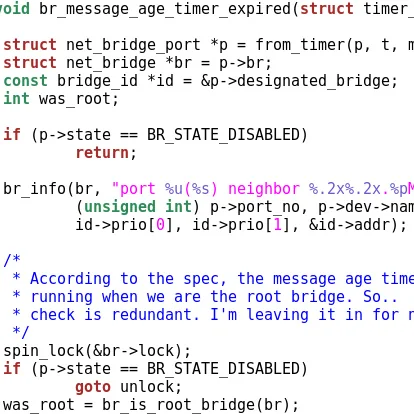HelenOS Micro-Kernel OS Still Marching On

Aside from the GNU Hurd talk, HelenOS was the subject of another talk at FOSDEM 2013, the Free Open-Source Developers' European Meeting, that happened one week ago. HelenOS has been under development since 2001 and is self-described as an "open-source multiplatform microkernel multiserver general-purpose operating system written from scratch."
While the Linux kernel alone is over 15 million lines of code, HelenOS is just over 822 thousand lines of code and has been developed by just over three dozen contributors over the past decade. The hardware support for HelenOS is better than GNU Hurd and includes support x86/x86_64, Intel Itanium, ARM (in the form of the Neo FreeRunner and BeagleBoard), MIPS (SGI Indy), PowerPC (Apple iMac G4), and SPARC (Sun Ultra) hardware. The operating system is written in C and is mostly BSD licensed.
Talked about at FOSDEM for HelenOS was its 0.5.0 "Fajtl" release that happened near the middle of last year, the OS was part of Google's Summer of Code,
HelenOS 0.5.0 brought kernel improvements with memory reservations and non-identity mapping in the kernel, a networking stack rewritten from scratch, a simple (static) web server, USB 1.1 support with UHCI / OHCI / HID, Serial ATA support, and other improvements to its device driver framework. Yeah, HelenOS is in much better hardware shape than GNU Hurd.
New file-systems now supported by HelenOS include exFAT, LFN, FAT32, ISO-9960, and EXT2. The operating system is almost self-hosting when using GNU binutils, the Portable C Compiler (PCC), and a MIPS R4000 simulator.
The graphics stack that's in development for HelenOS isn't derived from X11/X.Org or Wayland but rather consists of its own graphics driver, compositor server, and widget toolkit. Aside from a graphics stack, other changes being planned include supporting the CMOS wall clock for hardware, EXT4 with write support, and merging some of the Google Summer of Code projects from last year. There's also feature branches for audio support, the Go programming language, FUSE connector, a capability-based private-namespace file-system, porting GCC to the platform, and IPv6 support.
For those wanting to learn more about the current and future work going on within HelenOS, the FOSDEM 2013 slides can be viewed as PDF. More details on the operating system or to download it can be done at HelenOS.org.
11 Comments

